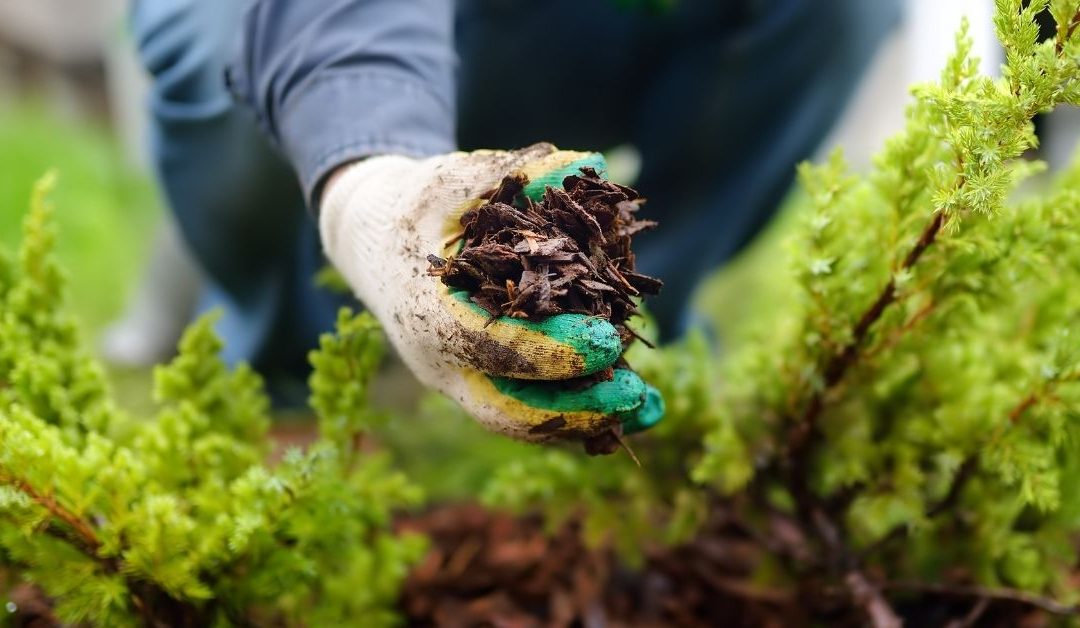Retaining Moisture & Keeping Weeds at Bay, Through an Auckland Summer
As summer heats up, maintaining a healthy, vibrant garden can become a challenge. High temperatures and dry conditions can quickly deplete soil moisture, leaving plants stressed and struggling. One of the simplest yet most effective ways to combat this is by mulching. A good mulch layer helps retain moisture, suppress weeds, and improve overall soil health. Let’s explore how mulching can be a game-changer for your garden this summer.
Moisture Retention: The Key to Thriving Plants
During our Auckland summers, water evaporates rapidly from our gardens, leaving the soil dry and plants thirsty and vulnerable. Mulching provides a protective barrier that reduces water loss by:
- Reducing Evaporation – A thick mulch layer shields the soil from direct sun exposure, keeping it cool and preventing rapid moisture loss.
- Improving Water Absorption – Organic mulch materials like bark, straw, or compost absorb water and slowly release it into the soil.
- Minimizing Runoff – Mulch slows down water movement, allowing it to penetrate the soil rather than running off.
This means your plants receive consistent moisture levels, reducing the need for frequent watering and helping them thrive through dry spells.
Weed Suppression: A Natural Solution
Weeds compete with plants for nutrients, water, and sunlight. Left unchecked, they can quickly take over garden beds. Mulching helps prevent weeds in several ways:
- Blocking Sunlight – A thick layer of mulch (about 5-10 cm) prevents weed seeds from receiving the sunlight they need to germinate.
- Smothering Weeds – Any existing weeds struggle to push through the mulch layer, reducing their chances of survival.
- Preventing Seed Dispersal – By covering the soil, mulch helps stop airborne weed seeds from settling and taking root.
Choosing the Right Mulch for Summer
There are several mulch options, each with unique benefits. The best choice depends on your garden’s needs and personal preferences:
- Organic Mulches (Best for Soil Health)
- Bark Chips or Shredded Bark – Long-lasting, excellent for moisture retention, and aesthetically pleasing.
- Straw or Hay – Lightweight and great for vegetable gardens, though it may need replenishing more often.
- Compost or Leaf Litter – Nutrient-rich and ideal for improving soil fertility while mulching.
- Inorganic Mulches (Best for Low-Maintenance Areas)
- Pebbles or Gravel – Retains heat and prevents weeds but does not improve soil fertility.
- Black Plastic or Landscape Fabric – Blocks weeds effectively but best used in areas that are going to have an aggregate spread on top, such as parking areas and pathways.
How to Apply Mulch Effectively
- Prepare the Area – Remove any weeds and water the soil thoroughly before applying mulch.
- Apply the Right Thickness – A mulch layer of 5-10 cm is ideal. Too thin won’t suppress weeds, and too thick may suffocate plant roots.
- Keep Mulch Away from Stems – Leave a small gap around plant bases to prevent rot and pests.
- Replenish as Needed – Organic mulches break down over time, so top up your mulch layer when it becomes thin.
Final Thoughts
Mulching is a simple yet powerful gardening technique that saves water, reduces weeding, and enhances soil health. By investing in the right mulch and applying it correctly, you can ensure your garden stays lush and resilient through the hottest months of the year.
At Naturescapes, we can help you choose the best mulch for your Auckland garden and apply it professionally for optimal results. Contact us today for expert gardening solutions tailored to your needs!





